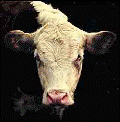Animal Science, Department of

Department of Animal Science: Dissertations, Theses, and Student Research
First Advisor
Daniel Ciobanu
Date of this Version
5-2014
Document Type
Thesis
Citation
Engle, T. B. 2014. Genome-wide analysis of the variation in host genetics in response to experimental challenges with porcine circovirus 2B. MS Thesis. University of Nebraska-Lincoln.
Abstract
Porcine circovirus is the primary causative agent responsible for inducing a group of associated diseases known as porcine circovirus associated diseases (PCVAD), which can have detrimental effects on production efficiency as well as lead to mortality. The variation in host genetics plays a role in the ability to initiate an effective immune response. The objective of this research was to identify major genetic variants and genes that influence immune response and PCVAD susceptibility. Commercial crossbred pigs (n=974) were experimentally infected with a PCV2b strain to analyze genetic sources of variation in PCVAD susceptibility. The strain used for experimental infection was recovered from a pig that displayed characteristic signs of post-weaning multisystemic wasting syndrome (PMWS). To evaluate the variation in response, blood and weights were collected from all pigs at days 0, 7, 14, 21, and 28 post infection. Blood samples were used to analyze PCV2 specific antibody (IgM and IgG) PCV2b viremia. Pair-wise correlations between phenotypic and genomic prediction values were estimated to evaluate common sources of variation. In addition, a genome-wide association study (GWAS) including 56,433 SNPs was performed to analyze the genomic regions responsible for the variation in host susceptibility to PCV2. The GWAS identified two important SNPs responsible for explaining approximately 11.5% (ALGA0110477; SSC 12) and 2.8% (ALGA0039710; SSC 7) of the genetic variation observed for viral load. Negative correlations between average daily gain (ADG) and viral load during the experimental challenge (r= -0.36, P<0.0001). Pigs exhibiting the CC genotype for the ALGA0110477 SNP demonstrated lower viral load (P< 0.0001) and higher overall ADG (P< 0.05) compared to the CT and TT genotypes. These genetic variants influence the host’s ability to stimulate immune response, and can therefore be utilized for selection to reduce PCV2b susceptibility. Selection based on these DNA markers can improve general animal health and welfare, provide an alternative to vaccinations, and decrease production costs.
Advisor: Daniel Ciobanu
Included in
Agriculture Commons, Other Animal Sciences Commons, Veterinary Medicine Commons, Virology Commons


Comments
A THESIS Presented to the Faculty of The Graduate College at the University of Nebraska In Partial Fulfillment of Requirements For the Degree of Master of Science, Major: Animal Science, Under the Supervision of Professor Daniel Ciobanu. Lincoln, Nebraska: May, 2014
Copyright, 2014 Taylor B. Engle
Formerly embargoed; now released to public 12/17/18.